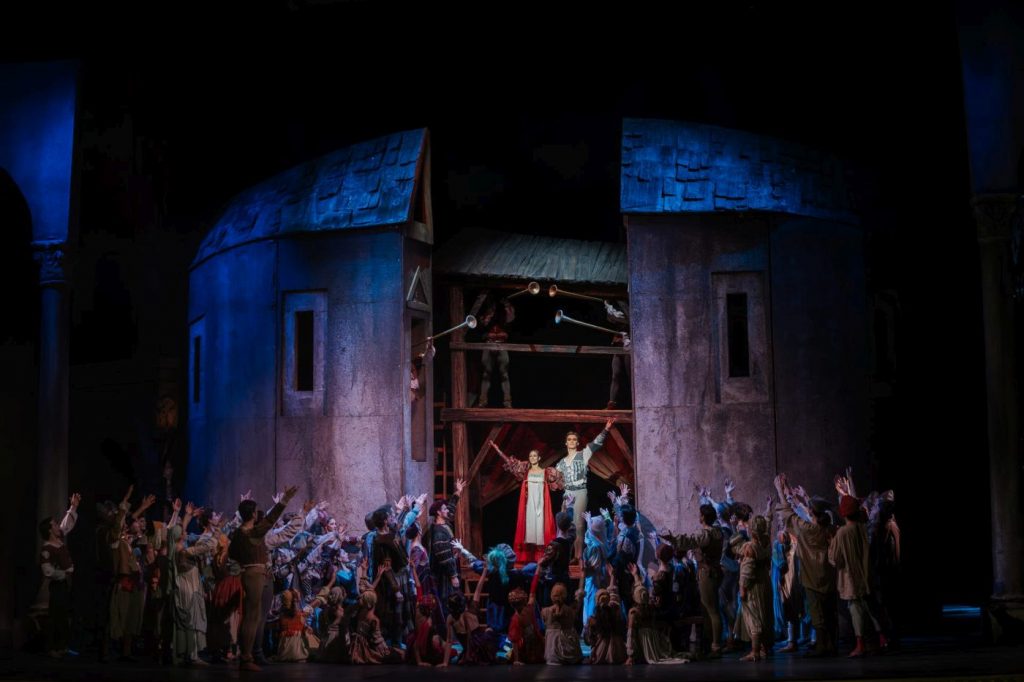“Romeo and Juliet”
Hungarian National Ballet
Hungarian State Opera
Budapest, Hungary
November 8-9, 2025 (evening performance and matinee)
by Ilona Landgraf
Copyright © 2025 by Ilona Landgraf
 Most ballet companies have a version of Romeo and Juliet. The Hungarian National Ballet’s version, by László Seregi (1929-2012), has been on the program regularly since its premiere in 1985. A crowd puller, the opera house was sold out at both performances I watched.
Most ballet companies have a version of Romeo and Juliet. The Hungarian National Ballet’s version, by László Seregi (1929-2012), has been on the program regularly since its premiere in 1985. A crowd puller, the opera house was sold out at both performances I watched.
Seregi’s name is well known to Hungarian ballet lovers. Initially trained as a folk dancer, he joined the opera’s corps de ballet when it was short on artists during the 1956 revolution. In 1977, he became the company’s director but, feeling burdened by his duties, suffered from an enduring artistic crisis. Continue reading “Applied Faith”


